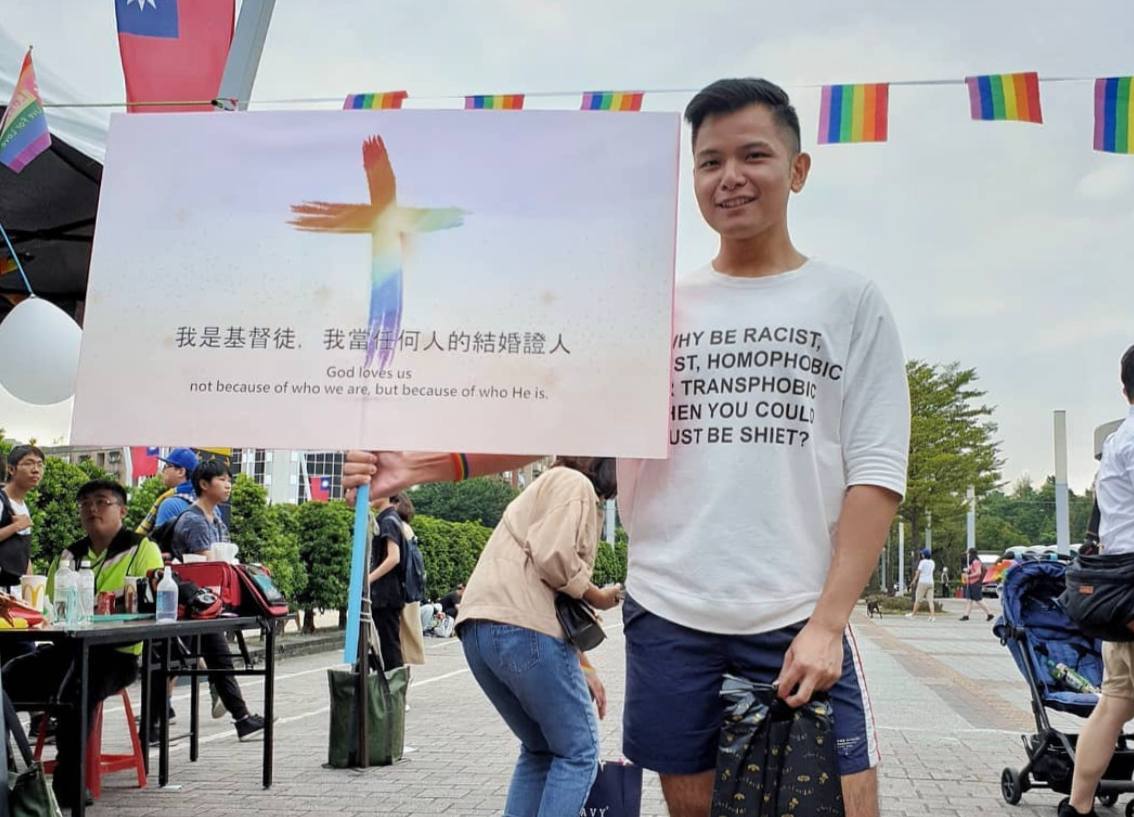Top image: Paul at Taipei Pride 2019
Two years ago, a few days before Christmas, my parents finally confronted me about something that I had flatly denied six years prior.
“Paul, alam namin yung pagkatao mo, at mahal namin kita,” my mother said. This was it, my coming out moment, complete with an affirmation of their love for me.
ADVERTISEMENT
There was something deeply poetic about the way my mother told me that she knew I was gay. The direct translation of what she said could be summed up as: we know who you are, and we love you.
But the word “pagkatao” can more literally be understood as: the quality of your personhood.
Growing up in a Christian household, I always thought coming out to my parents was out of the question.
I spent years of my adolescence navigating being gay and Christian, negotiating between two equally crucial facets of my identity, and learning how to find the point that was neither a compromise nor a middle ground. Now, I find myself not at a crossroads but a complete acceptance and identification with two defining aspects of myself.
I had no plans, however, of ever coming out to my parents. I took the difficulty and length of my journey towards self-acceptance as proof that it would be even more difficult for them to understand.
So I shifted my narrative around the non-admission of my sexuality to my parents. Instead of seeing it as a form of keeping a part of myself hidden from them, I was protecting them from having to reconcile an inherent contradiction for many.
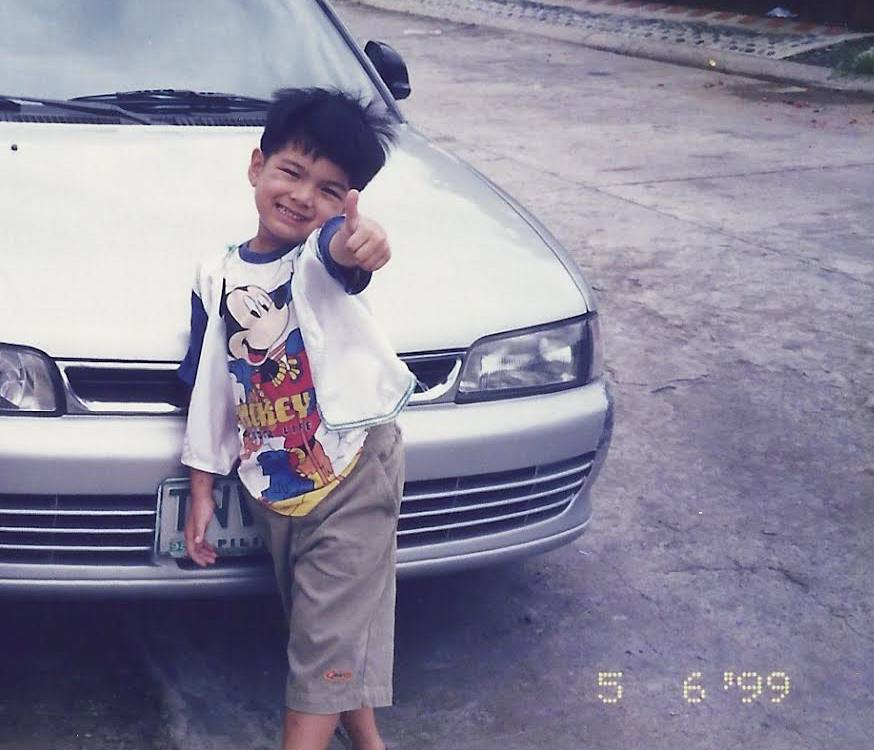
Furthermore, the notion of coming out of the closet is Western-centric. Queer theorists have offered alternative models of reconciling queerness, such as coming home, which academic Wah-shan Chou outlines as a combination of tactics that focus on non-conflictual harmonious relationships, non-declarative practical everyday acts, and a healthy personality not centred on sexuality.
So the concept of coming out, despite continuing to be regarded as a critical moment for queer individuals, is one that I had long forsaken.
But I wasn’t stepping out of the closet; mine was made of glass, and my parents told me they saw me for who I am.
The Cross, the Rainbow, and co-existence
Christianity and queer, non-heteronormative sexual orientations and gender identities are often pitted against each other as directly opposed concepts.
The narrative that most people are familiar with is that of the queer individual leaving their religion to pursue their authentic selves and express their sexual orientation free from religious judgment.
This is not without reason. The Christian church, after all, has been among the most vocal opponents when it comes to progress for lesbian, gay, bisexual, transgender, and/or queer (LGBTQ+) people, whether it be the decriminalisation of discriminatory laws, or the Singapore Psychological Society’s support for evidence-based therapy when treating the mental health of LGBTQ+ individuals.
ADVERTISEMENT
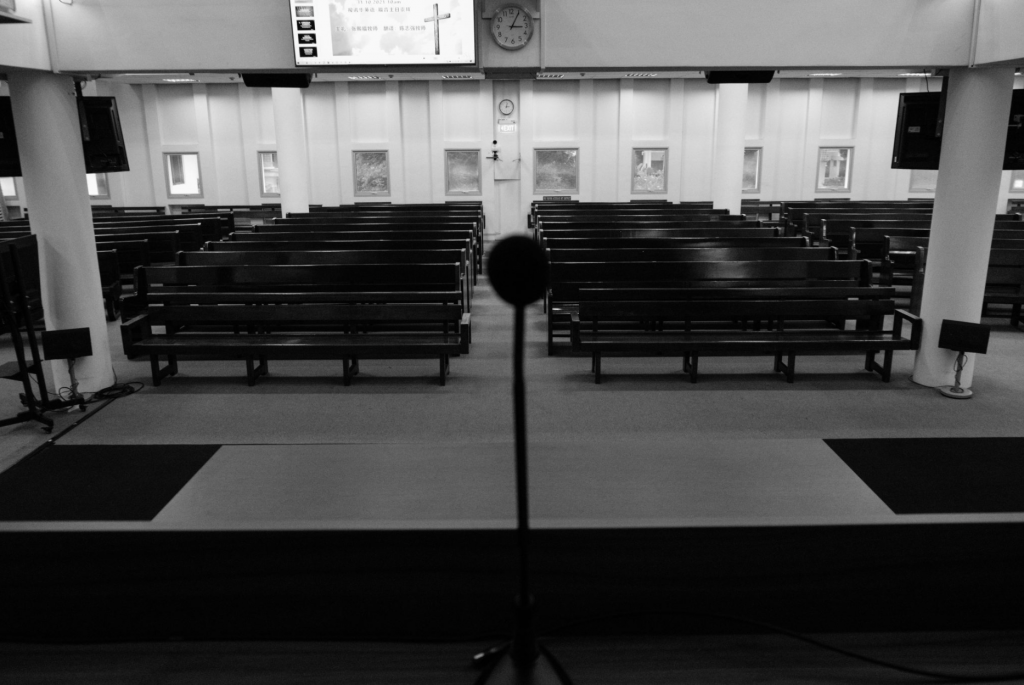
Another common trajectory is that of the queer individual choosing to remain in their faith at the expense of their sexual identity.
With the harms of conversion therapy being brought to light and support for conversion therapy becoming increasingly unpopular, some churches have changed their tack, offering instead a different way of re-framing queerness as “same-sex attraction”—less an inherent and immutable facet of one’s identity, and more as a condition that one does not have to act on.
But it doesn’t just have to be this way.
There are individuals who continue to identify as queer while practising their Christian faith.
Several Christian individuals have suggested that there can be room within the religion for openly queer people, the Free Community Church being an example for offering LGBTQ+ individuals a place to practise their faith in a safe space.
Furthermore, a 2018 study found that various factors help religious and gay men reconcile their differences, such as seeing faith as a personal relationship with God and reinterpreting one’s belief system and religious texts.
However, it can be more difficult for religious parents to accept their queer children wholeheartedly. While some might accept their children despite their sexuality, it might be harder for them to accept their children inclusive of their sexuality.
When twenty-year-old Con came out to his father, whom he describes as “very religious born-again Christian,” he said his father accepted him, but not without reservations.
“He told me that the Christian Bible tells us about the right thing to do,” said the undergraduate student, who identifies as bisexual and homoromantic. “He told me that he’ll support me but also wants the right thing for me.”
Though his father had initially hoped he would eventually be with a woman, Con said that his father had come around by their second conversation about it months later.
“I asked him, what if I end up being with another man instead? This time, he said there’s nothing he would be able to do about it anyway. I am who I am, and I like who I like.”
But what about the Bible telling us the right thing to do? I asked.
“He said, well, Jesus said to love people one another as He loves us. So, no matter what other parts of the Bible say, he said his role as a father is to love and support me.”
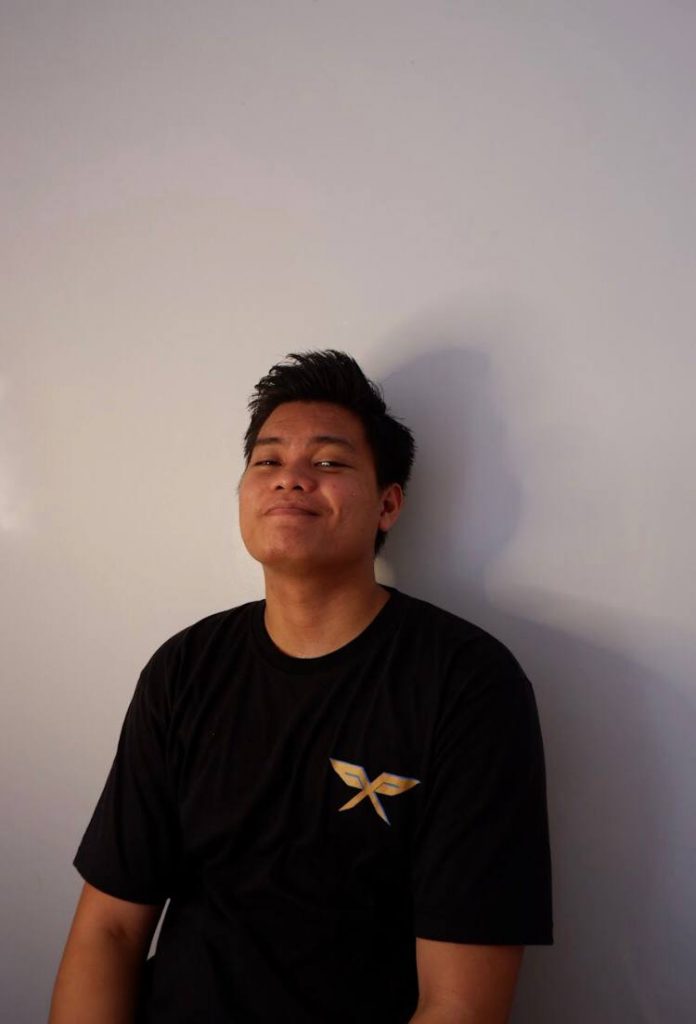
Reading the Bible critically as an act of survival
One of my earliest childhood memories, apart from the crushes that I had on my male classmates in kindergarten, was the nightly Bible study sessions that my mother led with my brothers and me.
With one copy of Our Daily Bread in one hand and the Bible in the other, my mother stressed the importance of building a personal relationship with God and reading directly from the Bible, rather than solely relying on an intermediary to decipher the Holy Word us. This is, after all, one of the distinguishing tenets of Protestantism.
A common refrain is that the Bible is clear when it comes to forbidding any expression of homosexual desire, for it contains certain verses that appear to condemn gay sex.
So once I was done with the mandatory phase of crying myself to sleep nightly as a young gay drama queen, I returned to the practice taught by my mother, diving right into the Bible, armed with the burgeoning resources made available by the internet in the early 2010s, discovering that there were other ways of interpreting Biblical verses.
The Free Community Church’s website now very helpfully collates some of these resources in an FAQ page.
Take the fact that the word “homosexual” did not even exist before the 19th century and was subsequently adopted from the 1980s to replace terms that more closely referred to pederasty and male sex work.
There has naturally been debate against new interpretations of the seven only texts that appear to talk about homosexuality, with conservative Christians calling this an act of cherry-picking.
But somehow it isn’t cherry-picking when it comes to hyperfixating on the issue of homosexuality when there are plenty of other sins in the Bible for the church to tackle, like greed and deception.
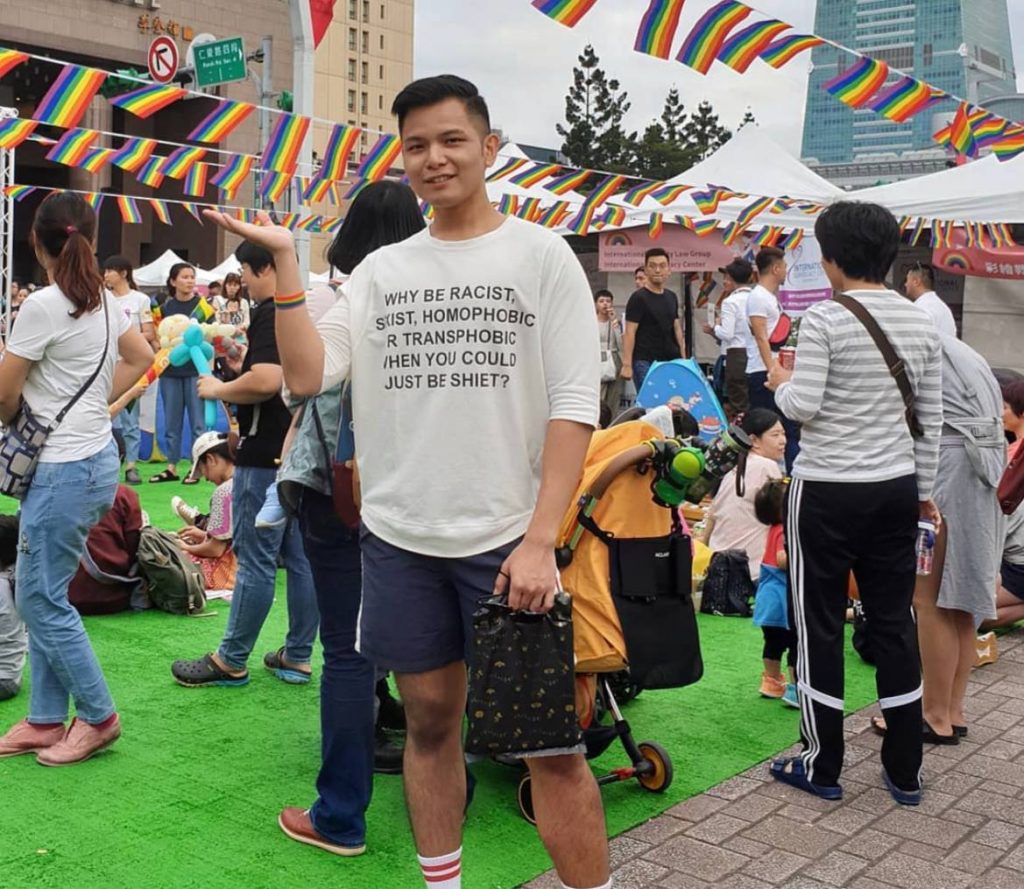
Paul at the Taiwan Rainbow Family Festival, held in conjunction with Taipei Pride 2019.
For twenty-one-year-old Nick, there was hardly any resistance when he came out to his mother, who had converted into Catholicism, which according to the national serviceman, “made it easier for her to accept (his) sexuality.”
“Catholicism wasn’t something that she forced down our throats,” said Nick, who has a younger brother. “She had come into the faith on her own accord, having done her research on various religions before coming to a decision.”
“This meant that she had a mind of her own, without being indoctrinated into thinking a certain way regarding non-heterosexual people.”
Nick noted, however, that he had somewhat eased his parents into his coming out by bringing his then-boyfriend over every weekend.
“What signalled to me that they would be okay with it was when my mother started to buy an additional serving of breakfast whenever my ex-boyfriend stayed overnight,” Nick said.
Upon coming out to her, Nick was told by his mother, “No matter what happens, you can always come home.”
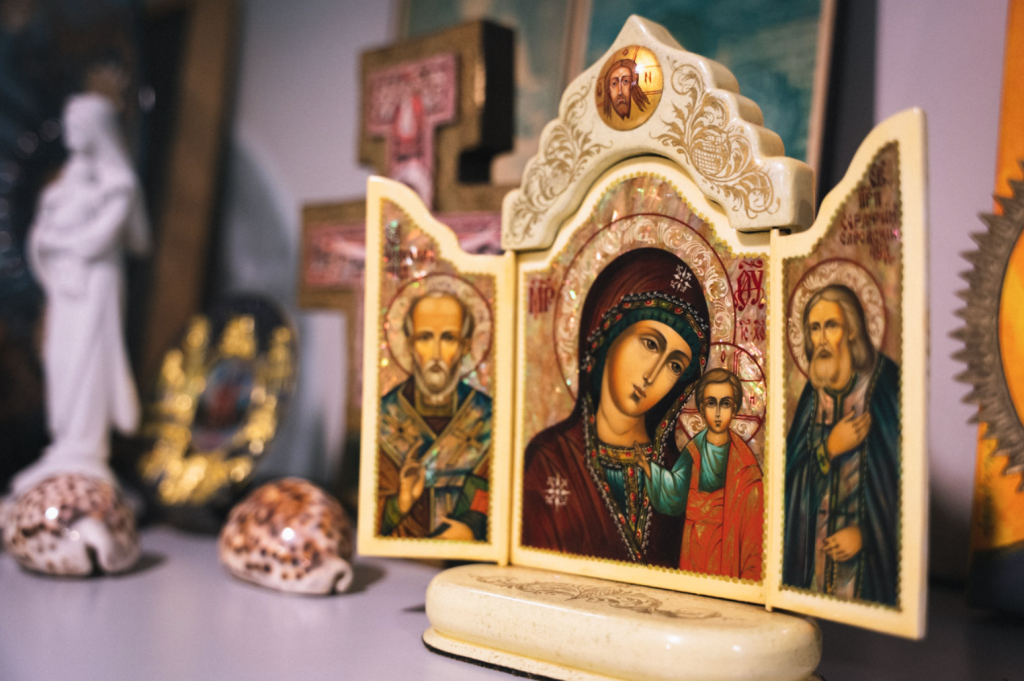
Come out, come home, come together
It goes without saying that many religious parents remain unyielding when it comes to accepting their child’s queerness, and the aim of this essay was never to pretend otherwise.
Many queer individuals have grown up against the backdrop of somewhat of a culture war between LGBTQ+ people—for whom the tide of public opinion has appeared to be shifting in favour of—and certain loud factions of Christianity, such as the Wear White movement in Singapore.
As a result, it can seem as though there is no point coming out to one’s Christian parents, especially if they go to churches that have led the charge against the acceptance of LGBTQ+ people in society.
But, if Nick and Con’s stories have one thing in common, it’s that coming out is not a single occasion but a process that can have varying degrees of gradualness.
I never intended to come out to my parents, and even lied when I was confronted at the age of 19, that I had volunteered at Pink Dot that year not because I was gay, but because I was supporting a close friend who was a lesbian.
Instead, they told me they knew about me and loved me nonetheless.
It then dawned on me that, just as coming out can be a lengthy process that involves trying on different ways of being oneself before stepping out of the closet, it is likewise a gradual process for one’s parents.
In some cases, there might be tell-tale signs from childhood, such as when I would perform re-enactments of my favourite Filipino singer’s music videos. In others, it might come as a surprise.
But either way, what’s important is that we give our parents a chance to regard us as we are and grow towards learning that the greatest love a parent can show is to love their child, not in spite of, but inclusive of their sexual orientation and gender identity.
Only, of course, if our parents have given us a safe environment in which to step out of our closet.
*Pseudonyms have been used to protect the interviewees’ identities
